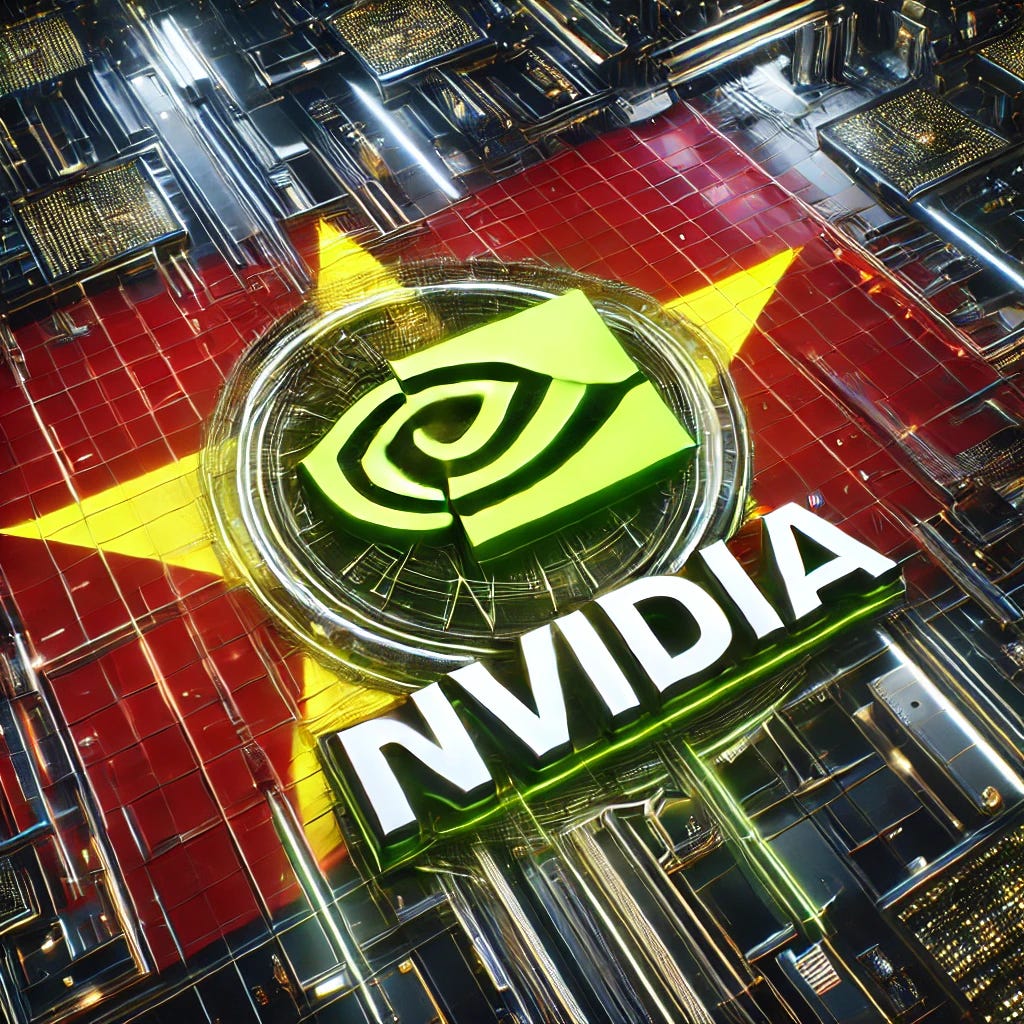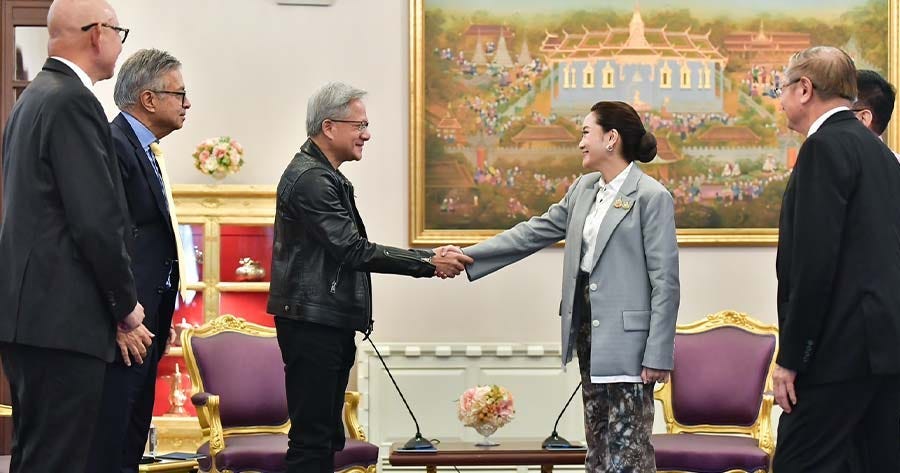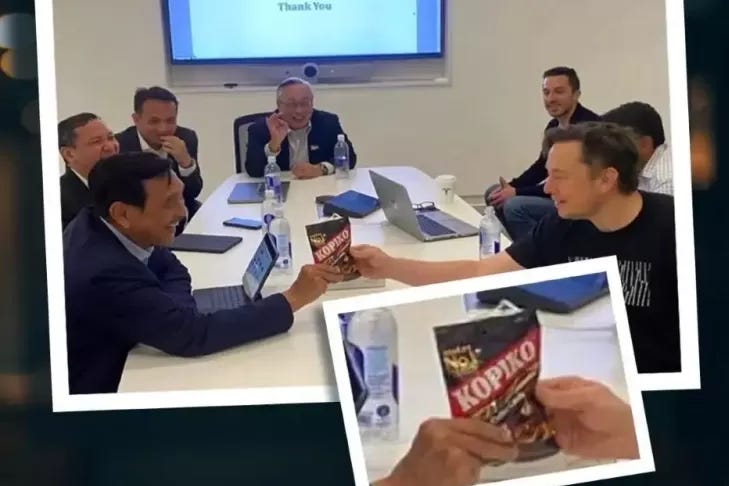The techie and patriotic citizens of Indonesia are right to have a chip on their shoulders. Over nasi gulai and crackers in the streets of Blok M (a shopping district in South Jakarta) with journalist Najwa Shihab, Jensen Huang proselytized the importance of A.I. for developing nations such as Indonesia.
A few hours prior, Huang attended AI Day Indonesia, where he discussed similar issues with Erick Thohir (the country’s Minister of State-Owned-Enterprises) and Patrick Walujo (CEO of Indonesia’s tech behemoth GoTo). He even got a personal phone call from the country’s newly elect President (Prabowo Subianto) over considerations on NVIDIA potentially investing in Indonesia.
But all such hospitalities failed to translate into any tangible investments in the world’s largest archipelago. Instead, Huang is placing his bets on Indonesia’s neighboring country — Vietnam — as the next A.I. hub of Southeast Asia.
Indonesia and Vietnam were not the only Southeast Asian countries Huang had his eyes on. Prior to sealing the deal with Vietnam’s Prime Minister over beer and chicken feet in the streets of Hanoi, Huang travelled to Bangkok, Thailand to meet with Prime Minister Paetongtarn Shinawatra.
The two discussed A.I.’s role in everything from weather prediction to education and healthcare. He later took the stage with Ratanaphon Wongnapachant, CEO of SIAM.AI cloud, a Bangkok-based company providing virtual servers to its customers. But in similar fashion to Indonesia — the nation that brought us the Pad Thai did not get chosen as NVIDIA’s secret sauce in Southeast Asia.
Why Vietnam?
NVIDIA’s commitment to building an A.I. Research and Development center in Vietnam is a peculiar one; and it reminds me of the rise of China’s technological and manufacturing capacities in the early 90s’. The first thing that we must remember is that Vietnam (just like China) is not a democratic country. It is a one-party socialist nation, whereby a single party — the Communist Party of Vietnam — holds monopolistic political power over the nation.
But just like China during their pre-economic boom of the 90s’, Vietnam possesses a strong army of young workers coupled with a highly market-oriented government with a focus on being friendly towards foreign investors. This interesting blend of centralized planning and aggressive openness to trade has certainly worked for China, and Vietnam seems to be copying the blueprint of its socialist big brother. With greater political tensions and trade wars between the US and China, and with the increasingly rising wages of Chinese workers, more and more US companies are indeed looking towards Vietnam as an attractive alternative.
In terms of manpower, Indonesia has circa 140 million people (half of its population) under the age of 30. But Vietnam’s demographic bonus is just as impressive — with 50 million people (also half of its population) under the age of 30. Thailand has a less impressive younger demographic with about 20 million people under the age of 30.
In terms of administrative red tape, Indonesia still lags behind Vietnam. It currently takes 11 documents to start a business in Indonesia, compared to 8 in Vietnam. Investors must submit 26 tax documents to do business in Indonesia, compared to only 6 in Vietnam. ChatGPT rates Vietnam’s bureaucratic complexity as “Moderate”, while Indonesia’s and Thailand’s as “High” and “Moderate to High” respectively.
In terms of GDP per capita, Vietnam has the lowest out of the three (VNM: $4,300 — IDN: $4,900 — THA: $7,200) but the country shows the most potential for growth out of the three. Vietnam’s economy looks more vibrant with a projected growth of 6.1% in 2024 and 6.5% in 2025 and 2026 — while Indonesia treads more slowly at an average of 5.1% from 2024 to 2026. Thailand’s growth looks much less alluring at a projected 2.4% in 2024 and 2.8% in 2025.
Déjà-Pho
This is not the first time Indonesia has lost to Vietnam in securing Silicon Valley’s trust. It has happened before with an even bigger name than NVIDIA. Apple, currently the most valuable company in the world, has invested about $16 billion in Vietnam since 2019 — dwarfing their investments in Indonesia of $100 million since 2017.
More telling than the dollar amount, however, is the nature of those investments. Apple’s investments in Vietnam were more business strategic by nature, while their investments in Indonesia were more charitable (for lack of a better word) by nature.
Apple’s investments in Vietnam have included the creation of assembly plants and electronic manufacturing facilities in the country. Their significant manufacturing and assembly presence in Vietnam is part of a grand strategy to diversify their supply chains away from and beyond an ever-riskier China.
In contrast, Apple’s investments in Indonesia have exclusively focused on the Apple Developer Academy — a free 10-month course for students to learn coding, design and professional skills. The course is currently being held in four locations throughout the country (yes — four — not four hundred). Needless to say, such small-scale investments are not going to move the needle for Indonesia’s technology capabilities anytime soon — if ever.
Indonesia is not alien to such salty decisions from the world’s largest tech companies. In mid 2023, Elon Musk’s Tesla chose to build their regional headquarters in Malaysia, the country’s next-door neighbor, despite Joko Widodo and his team’s engaged courting with the world’s richest man.
The Indonesian President and his ‘right-hand man’ Luhut Binsar Pandjaitan (Coordinating Minister for Maritime Affairs and Investment) both visited Musk in his SpaceX compound in Boca Chica, Texas the year before. They even shared Indonesia’s favorite coffee flavored candy (called Kopiko) together. But such hospitalities only left the country with a bitter taste in their mouth as Musk decided not to cough-up any investments in Indonesia the following year.
Despite all of our courting, and our abundance of natural resources, and our demographic bonus, and the sheer untapped capacity of our work force, Indonesia remains to be less attractive to Silicon Valley than some of our very closest neighbors. We have lost Tesla to Malaysia, Apple to Vietnam, and most recently NVIDIA — also to Vietnam. After serving nasi gulai to Jensen Huang and Kopiko to Elon Musk with nothing to show for it, I am afraid the country is soon running out of ideas (and food items) to attract much needed investors.







